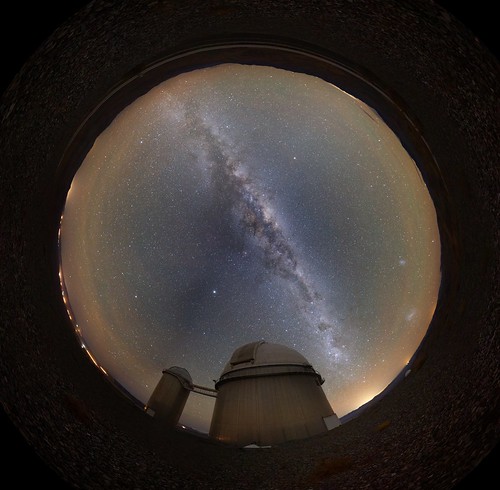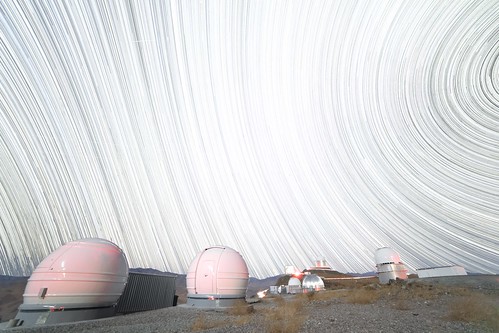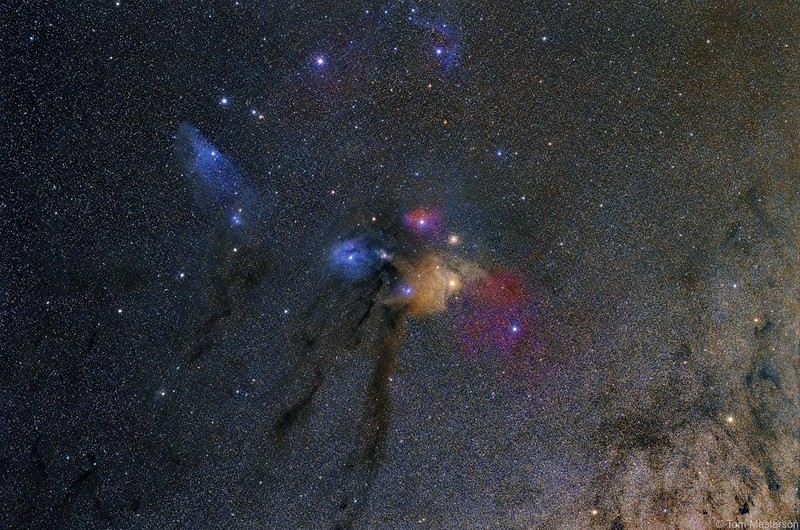 The Head and Claws of Scorpius by Transient Astronomer, on Flickr
The Head and Claws of Scorpius by Transient Astronomer, on FlickrImage Credit and Copyright Tom Masterson
 The Head and Claws of Scorpius by Transient Astronomer, on Flickr
The Head and Claws of Scorpius by Transient Astronomer, on FlickrNice picture!markh@tds.net wrote: ↑Wed May 16, 2018 3:34 am Copyright: Mark Hanson
NGC 4449 in Canes Venatici
NGC 4449Apodsmall.jpg
"Belonging to the class of Magellanic type irregular galaxy, NGC 4449 is a small but lovely cosmic denizen of the constellation Canes Venatici. It is very close (in astronomical terms) at 12.5 million light years.
Blazing across its structure is a starburst of young blue stars and active red nebulae forming new stars at a (fast) and furious pace! Detailed analysis of the starburst has determined that it started 500 million years ago. For many years, it was hypothesized that the starburst observed in NGC 4449 was triggered by an interaction with another galaxy.
Enter astronomer extraordinaire David Martinez-Delgado and his pro-am collaboration project to document tidal streams in nearby galaxies. His tidal stream survey has uncovered previously unknown tidal streams in many galaxies. Utilizing a group of amateur astrophotographers led by Jay GaBany with a worldwide network of telescopes and remote observatories, it has been possible to obtain very long exposures that would not normally be possible with professional observatories due to limitations imposed by time allocation constraints. The group of amateur astrophotographers includes many famous people such as Ken Crawford, Adam Block, Fabian Neyer, a certain Mark Hanson and many others.
Deep images taken by the tidal stream survey group uncovered an extremely faint tidal stream, which is the remnant of a former dwarf companion. Special image processing techniques combined with very long exposures are able to reveal very faint features that would not normally be visible. This stream can be seen as the ghostly elongated tidal feature to the south of NGC 4449. It was first discovered in 2007 by Igor Karachentsev and followed up for a definitive detection by the tidal stream survey team. The stream has a size of approximately 23,000 x 5000 light years.
The accretion of smaller galaxies is a major contributing factor to galaxy assembly and is a major topic of research in astrophysics. Revealing the dim past of galaxies can help gain insight to their future and address related topics such as dark matter distribution."
Description by "Sakib Rasool"
Taken from "Stellar Winds Observatory" a/k/a Stan Watson Observatory at Dark Sky New Mexico
PlaneWave 24" LRGB, 570,240,240,240
Full Resolution image here: https://www.hansonastronomy.com/ngc-4449
Thank you,
Mark Hanson
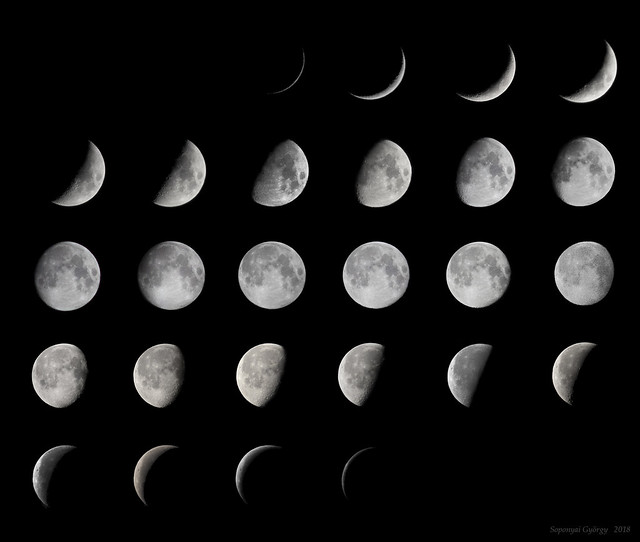
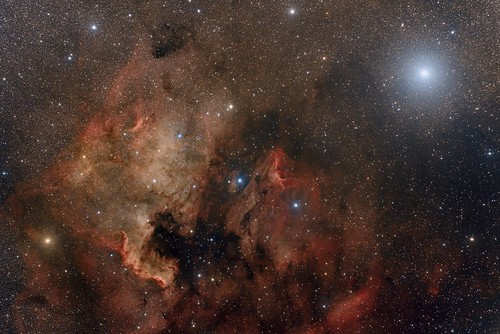 NGC7000_2018 by Raul Villaverde, en Flickr
NGC7000_2018 by Raul Villaverde, en Flickr

